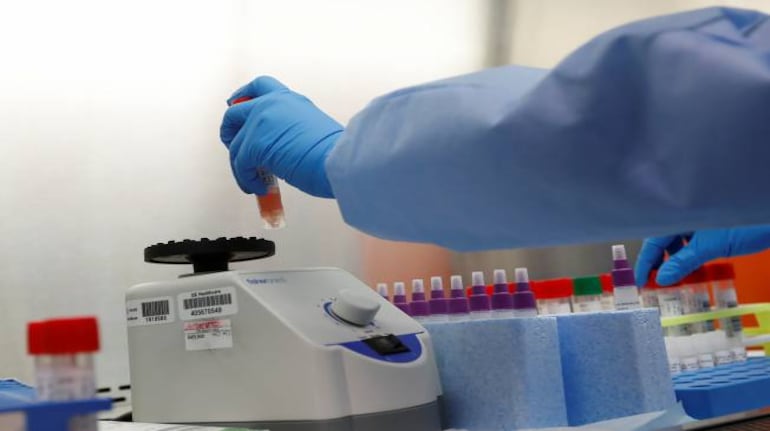
Amit Chhabra
In view of the ongoing pandemic, the Insurance Regulatory and Development Authority of India (IRDAI), in one of its series of circulars issued on June 11, 2020, has advised all health and general insurers to include telemedicine as part of their claim settlement of policy. As per the regulatory body, all provisions for allowing telemedicine shall now be a part of the claim settlement process of health insurers and need not be filed separately with the authority for any modification. Of course, the norms of sub-limits, monthly/annual limits, etc., of the product shall continue to apply as earlier without any relaxation.
The new guideline is definitely a great relief for customers, especially in the current situation, as it may not be possible or even advisable to go to hospitals and clinics for regular consultations. The provision for providing healthcare through telemedicine by medical practitioners will prevent the transmission of COVID-19 and will reduce the risks to both healthcare workers and patients. One of the most important advantages of telemedicine is the saving in costs and efforts need for travelling long distances, especially for rural patients who commute from villages to cities for obtaining consultation and treatment.
Telemedicine expenses
While taking treatment through telemedicine, it is important for policyholders to know that the IRDAI has made it clear that telemedicine will only be covered under a health insurance policy wherever medical consultation with a medical practitioner is allowed as per the terms and conditions of the policy wordings. Insurers mostly cover medical consultation under OPD or pre/post hospitalisation. Now, if your policy covers OPD and, pre or post hospitalisation expenses, then telemedicine consultation will be covered under your health insurance cover. However, if your policy doesn’t cover these charges, then telemedicine consultation will not be covered under your health insurance policy.
If you plan to buy a new health insurance cover any time soon, make sure your policy covers you for OPD and pre/post hospitalisation expenses as these are classified under out-of-the-pocket healthcare costs. Medical care in India remains largely as an out-of-pocket expense and a significant part of healthcare expenses in India i.e. almost 64% are out of the pocket expenses that people pay from their pocket. OPD treatment means the one in which you visit a clinic or hospital for consultation, diagnosis and treatment based on the advice of a Medical Practitioner. You do not have to be admitted as a day care or in-patient. To put it simply, anyone taking telemedicine consultation from a doctor will be allowed to claim the expenses under a health insurance policy provided their policy covers OPD or pre/post hospitalisation expenses.
No More Proportionate Deductions
Through another circular, the regulator even advised health insurers to no longer bracket costs associated with pharmacy and consumables, implants and medical devices as well as diagnostics under associate medical expenses as part of their health policies. Insurers have even been advised not to recover any expenses towards proportionate deductions other than the defined associate medical expenses while processing claims of the policyholders.
Earlier, if a customer opted for a room that cost more than what he was eligible for as per the policy terms and conditions, the insurer used to apply a proportionate deduction on associated medical charges. However, now, as per the updated guidelines, no proportionate deductions will be made on the associated medical charges that include pharmacy, diagnostic, consumables and other implants, but the insurer will bear all the expenses. Moreover, there will be no deduction for ICU admission also as it is classified under a single category. All the provisions of the above stated guidelines are applicable to new health insurance products filed on or after October 1, 2020, and for all existing policies that are up for renewal from April 1, 2021 onwards. This is being seen as a great move for customers, as it will reduce out-of-pocket expenses to a great extent and the insurers will have to negotiate with their individual network of hospitals.
Standardisation of indemnity health products
The regulator even issued guidelines on standardising general terms and clauses in indemnity-based health insurance products. The issued guidelines are believed to simplify the buying experience for consumers and ensure uniformity across the industry. To simplify the clauses and wording, insurers have been asked to incorporate the same wording prescribed by the regulator across all products. The defined guidelines shall come into effect from October 1, 2021. Customers will have the option of paying premiums in instalments, and insurers will have to offer a grace period. Some other guidelines of the of the circular include: if policyholders misrepresent facts and fail to disclose material information while buying the health insurance policy, insurers will have the full right to forfeit the premium paid by them and render the policy void.
Disclosure of health claims settlement data
In order to promote transparency, IRDAI has directed all general and standalone health insurers to publish quantitative and qualitative data related to processing and settlement of health insurance claims in their official websites. Insurers have also been advised to disclose the turnaround time (TAT) for cashless claims for individual/group policies and settlement or repudiation of claims for individual/group/government policies.
(The writer is Health Business Head, Policybazaar.com)
Discover the latest business news, Sensex, and Nifty updates. Obtain Personal Finance insights, tax queries, and expert opinions on Moneycontrol or download the Moneycontrol App to stay updated!